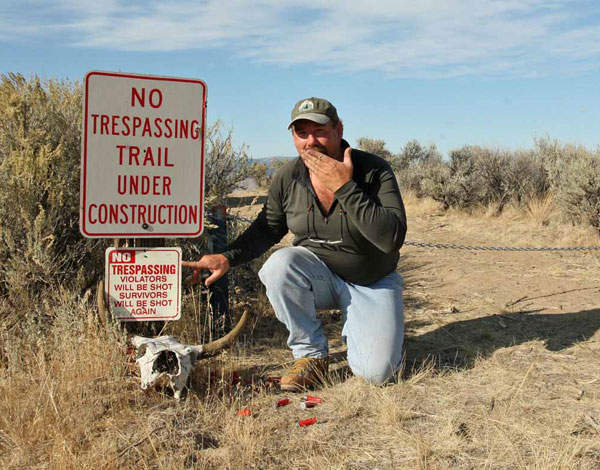

‘There was a decorated SAS hero, a wealthy landowner and a Liberal Democrat peer.’ This sounds like the start of a rambling joke but these are some of the protagonists who feature in a protracted property dispute.
The case, which has been recently heard in the High Court, concerns whether Lieutenant Colonel Wood, the owner of land formerly possessed by Lord Sharman, enjoys the benefit of rights of way over adjoining land thereby allowing horse riders from his commercial livery yard to reach a nearby bridleway.
This adjoining property, owned by Edward Waddington, hosts a renowned partridge and pheasant shoot, and the concern over the effect of horses crossing his land on this venture provoked Mr Waddington to construct gates to block the access.
The two properties were formerly in common ownership and this has led Mr Wood to claim that the requisite rights of way were either granted expressly or by implication at the time of the sale off of part. The claim to the express right is a matter of construction of the relevant transfer and provides little general guidance.
However, the alternative ways Mr Wood has put his implied claim very much highlight the complexity and uncertainty of this area of law – the law of easements. While there is no definition in English law, easements are described as rights to do something on someone else’s land and include rights of way. There are also ‘negative easements’, so called because they give one landowner the right to prevent a neighbour from doing something on the neighbour’s own land. These negative easements include rights of support and rights of light.
In summary, Mr Wood claims that Manor Farm has acquired an implied easement (ie right of way to the neighbouring farm) relying on a number of different arguments. First, that the surrounding circumstances of the sale show the intention of the parties for the right of way to benefit Manor Farm.
Secondly, relying on established case law, easements will be implied if they are ‘continuous and apparent’. This means that there is a feature on the land which would be seen on inspection, is not transitory and is necessary for the reasonable enjoyment of the property.
Finally, certain facilities enjoyed with the land at the time of the sale may be implied by statute. Its effect can be to transform certain precarious benefits into easements and hence a right on the land. Both the case law and the statutory provision have been criticised for being uncertain in effect and as potentially being traps for the unwary.
The judgment is awaited in Wood v Waddington but while it may ultimately provide a degree of clarification on discrete aspects of the law, it will not address the fundamental complexity, uncertainty and inconsistencies that exist. The prospect of more wide-ranging reform does exist, however, following the publication in 2011 by the Law Commission of their report ‘Making Land Work: Easements, Covenants and Profits à Prendre’.
The Law Commission’s recommendations include sweeping away the many and complex ways in which easements can arise by implication and replacing them with a single statutory principle that easements will be implied where they are reasonably necessary for the reasonable use of the land at the time of the transaction.
The Law Commission also proposed reform of the law relating to when an easement can be acquired by long user, known as prescription. In summary, if a landowner makes use of a neighbour’s land for a long period (at least twenty years) without permission, openly and peaceably he may acquire an easement by prescription. There are currently a number of alternative methods of prescriptive acquisition but it is, again, proposed that a new single statutory scheme will apply going forward.
There are also proposals which will be attractive in particular to developers of land relating to when there will be a presumption that an easement has been abandoned and the ability to apply for the modification or discharge of an easement, say to realign a right of way to prevent it frustrating the implementation of a planning permission.
Although the Law Commission’s report included a draft parliamentary bill, there is no guarantee that it will find its way on to the statute book. This will depend on whether there is the necessary political will and space within the legislative timetable.
Its introduction would, however, be welcomed as it would reduce the scope of the type of disputes over rights of way and other easements which Mr Wood and Mr Waddington know are just not funny.
Jon Mowbray is a partner at IBB Solicitors






